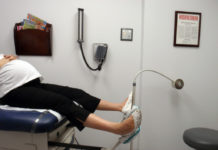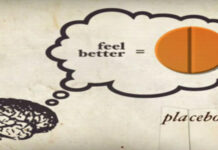Research Finds Ketamine Does Not Reduce Delirium or Pain After Surgery
Contrary to widely-held belief, a new rigorous trial finds that ketamine is ineffective for delirium and pain associated with surgery, and the drug carries harmful side effects.
Antidepressant Use Associated With More Violent Suicide Attempts
A new study found that taking an antidepressant medication was associated with a heightened risk of suicide using violent means.
“Holding Big Pharma Accountable: Why Suing the Pharmaceutical Industry Isn’t Working”
Writing for the Huffington Post, Caroline Beaton looks into how drugs continue to make billions in sales even after they lose lawsuits for fraud and misconduct. “The persistence of Big Pharma's fraud despite ubiquitous legal action suggests that our present efforts to hold the industry accountable are ineffective,” Beaton writes. “New polices in motion will make potentially unsafe drugs even easier to bring to market and promote.”
Antidepressants Tied To Increased Risk of Homicide “Only Modestly”; Benzodiazepines More So
Taking antidepressant or benzodiazepine medications increases the risks that a person will commit a homicide, according to a study from Finland published in a World Psychiatry letter.
“Pass on the Pill or Pass Out” Campaign Warns Women About Addyi
“The National Women’s Health Network launched the 'Pass on the Pink Pill – Or Pass Out' campaign, to warn women of the marginal benefits...
Antipsychotics Prescribed Off-Label for Challenging Behaviors
Antipsychotics are being prescribed to people who may have challenging behaviors but no mental disorder, according to new research published in this month’s issue of BMJ. “Excessive use of psychotropic drugs has individual and systemic implications,” the researchers write. “Antipsychotics, in particular, are associated with several adverse side effects that can impair quality of life and lead to deleterious health outcomes.”
New Study Concludes that Antidepressants are “Largely Ineffective and Potentially Harmful”
A new study published in Frontiers in Psychiatry concludes that “antidepressants are largely ineffective and potentially harmful.”
“World Benzodiazepine Awareness Day Set for July 11th”
The 11 July 2016 will be the inaugural World Benzodiazepine Awareness Day, part of a campaign to raise global awareness about the issue of doctor-induced benzodiazepine dependency, which affects...
“Patients Unwilling to Consent to ECT”
More than one-in-10 forms authorising ECT received by the Mental Health Commission (MHC) between 2013 and 2015 reported that the patient was unwilling to consent...
Over Ten Thousand Unfiled Claims Against Risperdal Over Breast Growth in Young Boys
Johnson & Johnson is exposed to personal injury and product liability lawsuits over the failure to warn about Risperdal gynecomastia side effects in boys.
Many Teens Start Misusing Stimulants By Age 13
An equal percentage of young people will start misusing ADHD-related and other stimulant drugs for the first time at age 13 as will start at age 20.
“Whitewashing a Black Box Warning: The Chantix Story That Didn’t get Told”
"The decision to remove the Chantix black box warning had its roots in a study known as the EAGLES trial, which was mandated by...
Large Study Confirms Elevated Risk of Diabetes When Prescribed Antipsychotics
A large longitudinal study finds once more that being prescribed antipsychotics significantly increases the risk of diabetes.
Researchers Question Link Between Genetics and Depression
A new study, published in the journal Molecular Psychiatry, found no link between genetics and the occurrence of depressive symptoms.
FDA Asks Pfizer for Update to Zoloft Label, Warns of Birth Defect Risks
Bloomberg reports that the FDA asked Pfizer in August “to modify safety warnings for its antidepressant Zoloft (sertraline) and acknowledge for the first time that some studies linked the mood-altering medication to heart defects in newborns.”
The Evidence-Based Mind of Psychiatry on Display
The writings of Pies and his colleagues, I believe, provide a compelling case study of cognitive dissonance. Cognitive dissonance arises when people are presented with information that creates conflicted psychological states, challenging some belief they hold dear, and people typically resolve dissonant states by sifting through information in ways that protect their self-esteem and their financial interests. It is easy to see that process operating here.
GlaxoSmithKline Accused of Hiding Paroxetine Results
The UK Times reports that pharmaceutical companies are actively lobbying to limit the release of clinical trial data to the public. Rather than limiting results and data to medical journals, new transparency initiatives are pushing for making the information publically available. The push for transparency comes in the wake of the reanalysis of the Study 329 data on paroxetine (marketed as Seroxat and Paxil), which found that the industry study had misconstrued its results.
New Review of Antipsychotics for Schizophrenia Questions Evidence for Long Term Use
A systematic review of the limited research available on the long-term effects of antipsychotics finds fewer symptoms in those off of the drugs.
Study Reduces Over-prescription of Antipsychotics in Older Adults
New intervention shows promise in reducing over-prescription of off-label antipsychotics in older adults.
Petition Calls on Pharma Companies to Offer Tapering Kits for Depression and Anxiety Drugs
A change.org petition out of the United Kingdom is addressing the extreme difficulty faced by people who attempt to taper off of antidepressants and...
Antidepressants Not More Effective Than Therapy for Major Depression
A new study, published this week in BMJ, found no major differences in the effectiveness of cognitive behavioral therapy (CBT) and antidepressants. When the researchers compared previous studies, they found no major differences in relapse rates or level of treatment response between those taking antidepressants and those undergoing CBT.
Benzodiazepine Use Linked to Dementia and Memory Loss
A recent review of the research found that benzodiazepine use may have long-term effects on memory and increase the risk for dementia. The study,...
SSRI Does Not Improve Outcomes or Mood for Patients with Heart Failure
A study released this week in JAMA examined whether giving patients with chronic heart failure and depression the SSRI antidepressant escitalopram (Lexapro) for two...
Antidepressants During Pregnancy Increase Risk of Psychiatric Diagnosis in Children
New research, based on data from almost a million children in Denmark, suggests that children of mothers who use antidepressants during pregnancy are more likely to be diagnosed with autism and psychiatric disorders.
Study Investigates Physicians’ Beliefs About Placebo and Nocebo Effects of Antidepressants
Surveyed doctors overestimate pharmacological effects of antidepressants and underestimate placebo effects.



















